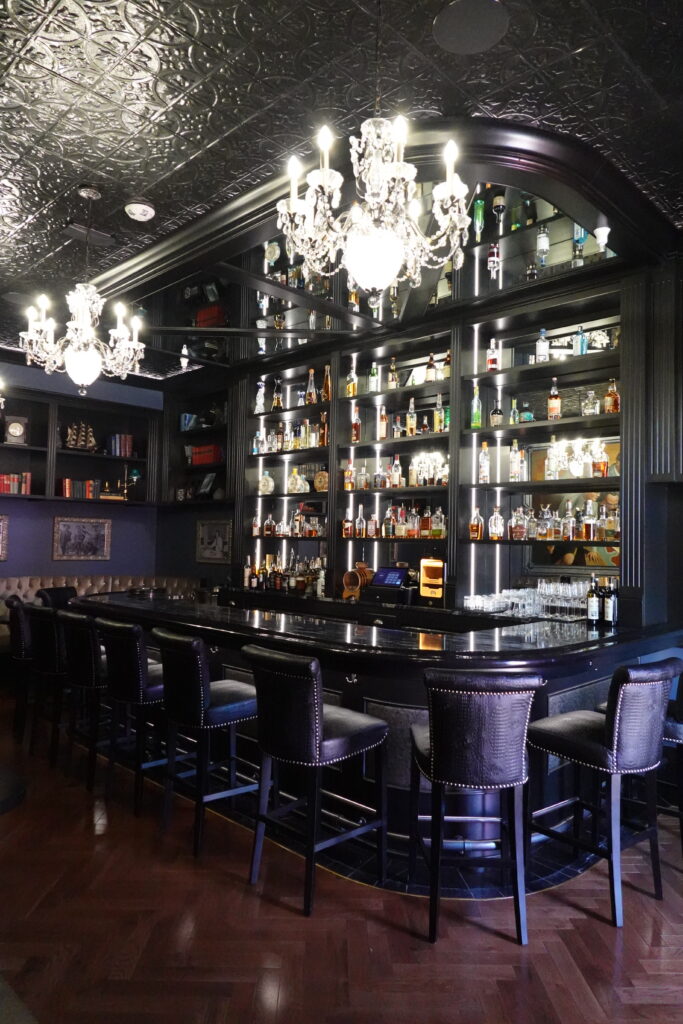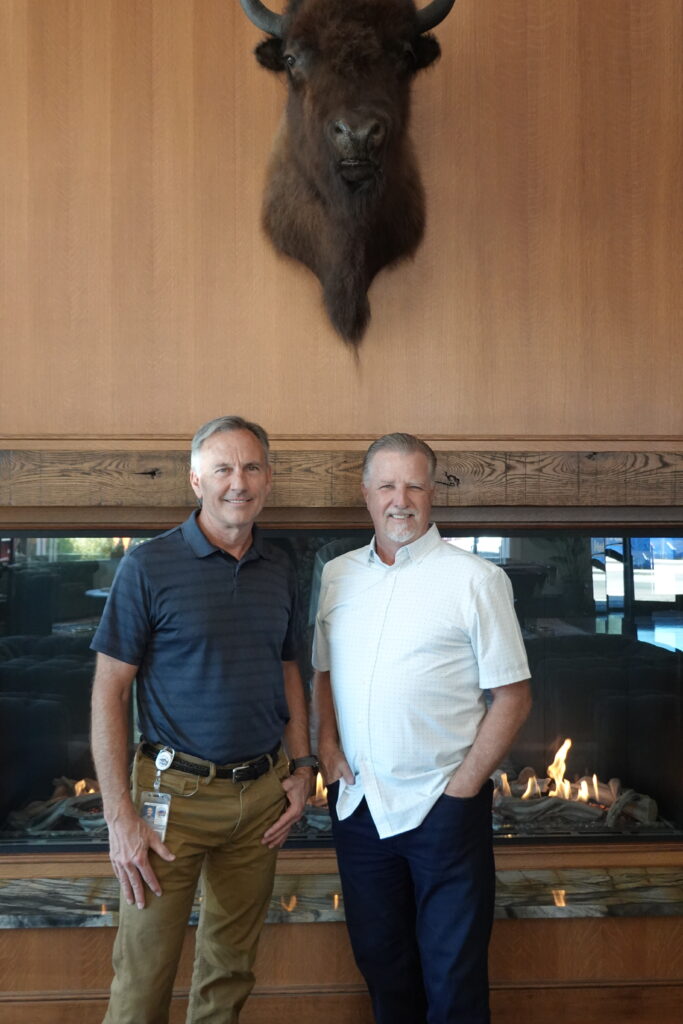The Hotel St. Cloud, a landmark on Cañon City’s Main Street, narrowly escaped demolition in 2012, when its corporate owners deemed essential repairs too costly.
Six years later, serial social enterprise entrepreneur Stan Bullis took on the project through his Denver-based company, Unbridled.
“It needed to be saved,” he says. “It’s a very prominent building in a very prominent location with a very prominent history.”
But the hotel’s restoration has a significance beyond the building itself. Along with Bullis’ other projects and the city’s infrastructure upgrades, it is driving a renaissance on Main Street, inspiring additional building renovations and attracting new businesses.
“The St. Cloud is going to have an impact on our community that’s never been seen before,” says Rick Harrmann, Cañon City’s economic development manager. “It is going to be our first four-star hotel — an amazing establishment that will change our demographics and our economy.”
With the lobby and the rest of the first floor finished, that’s already happening.

“When we came in 2018, Main Street had about a 40% vacancy, and now it fluctuates between 5-10% vacancy,” Bullis says.
The hotel now welcomes patrons to the Fremont Public House bar; the War Room, a speakeasy; and a restaurant named 1887, A Historic Eatery. Outfitted with period-appropriate flooring, elegant fixtures and furnishings, they’re already popular with locals and visitors.
Work is proceeding on the guest rooms. The hotel originally had 55 rooms, but when it reopens in March 2025, it will have 36. The original 10-foot-by-10-foot rooms have been combined for more modern standards.
Bullis says that 90% of the workers on the project are drawn from the local area. “We learned in the process that there’s quite a good group of engaged professionals here. They care a lot about this building,” he says.
He estimates that about 200 people have been employed on the project so far.
A Business Ecosystem
Bullis has been in the hotel and event industry since 1981.
“I started out as a dishwasher at 16 and worked my way through food and beverage, then banquets and catering, and then I got into sales,” he says. Bullis worked with Marriott Hotels and Ritz-Carlton Hotel Co., then went into event planning and founded Unbridled in 2001.
“As we kept dreaming about new services, we would add new companies,” he says. The events business spawned a travel agency, production company, creative agency and more enterprises that created an ecosystem of shared services that now encompasses 32 companies.
“We wanted to be a social enterprise business before that was cool,” Bullis says. “We wrote in the initial bylaws that our first 20% of profits would go to charity, the second 20% would stay in the companies and the balance, 60%, would be distributed to shareholders. Every company of the 32 has that social aspect.”
Bullis says his companies generate between $1 million and $1.5 million a year for charities.
“One of the companies was devoted to preservation of historic buildings,” he says. “I’ve always wanted to own a hotel because of my hotel background, and we wanted to explore this business model: doing good by doing well. Could there be some long-range impact on small towns?”
That’s why Bullis was immediately interested when the St. Cloud went up for auction in July 2018.
Costly Renovations
Originally built in Silver Cliff in the silver boom days of 1883 and moved to Cañon City in 1887, the St. Cloud provided luxurious accommodations for film stars during the silent movie era, when Hollywood used the town as a picturesque setting. It subsequently saw other uses, including at one time being converted to apartments.

Bullis knew the hotel needed a lot more than a facelift. Right off the bat, he had to mitigate asbestos and lead-based paint. These costly renovations were accomplished with the help of state and federal tax credits. Unexpected costs inflated an $8.8 million budget to the current budget of $17 million.
“We discovered that the building was collapsing on itself,” he says. That required lifting the hotel four inches to install new infrastructure.
“We ran out of money twice,” Bullis says. “Then the state of Colorado gave us a grant, and we rolled it into a new markets tax credit,” which helps finance projects in underserved communities.
Between 2018 and 2021, Bullis bought and restored six more Main Street buildings, including the town’s old post office, which houses the Fremont Center for the Arts; the Apex Building, converted into retail and office space; and Fremont Provisions, which accommodates a restaurant and event space in a historic ballroom.
“We’re trying to make Main Street a destination; a place that you want to stay,” he says.













